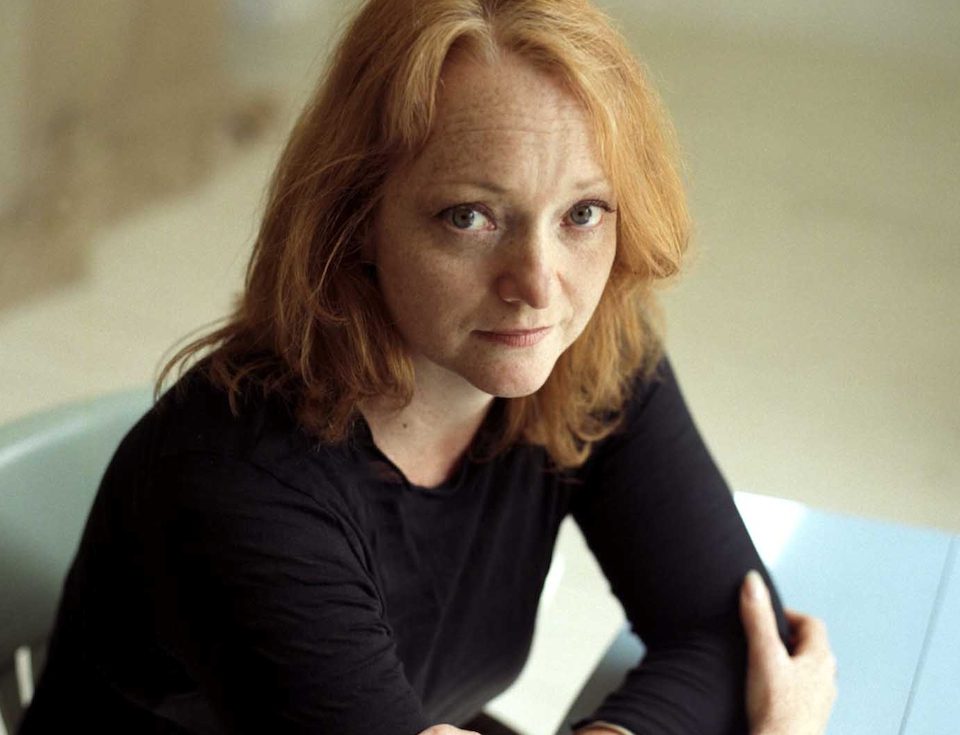Stella Duffy was born in London in 1963 and spent her childhood in New Zealand, before returning to London 20 years ago. She has published numerous short stories and many feature articles for magazines and newspapers, such as Marie Claire, Elle, The Times and The Guardian.
Stella was co-editor of the anthology Tart Noir (2002) with Lauren Henderson. One of her short stories, Martha Grace, included in the Tart Noir anthology, was awarded the CWA Macallan Short Story Dagger in 2002. Stella combines writing with performing, acting, improvisation and presenting. She has performed in Improbable Theatre’s highly acclaimed Lifegame throughout Britain, off-Broadway in New York, and in Australia. She writes and records regularly for BBC Radio 4, her work includes several plays and the sitcom, Losers.
Stella’s previous novels include five in the crime-writing genre; Calendar Girl (1994), Wavewalker (1996), Beneath the Blonde (1997), Fresh Flesh (1999) and Mouth of Babes (2005) featuring private investigator Saz Martin. “I didn’t mean to write crime novels, the first one did have a dead body and a detective, but I didn’t think it was about the crime, I thought it was about the love story.”
Stella continues, “I’m not very interested in ‘whodunit’ and I’m certainly not interested in being the kind of writer who is smarter than the reader and who includes a revelation at the end. The only reason I’ve written crime is because I am interested in the motive and that works in crime novels as well as literary novels. It has always been about people’s emotional motives.”
The Room of Lost Things is Stella’s latest novel and is based in and around Loughborough Junction, near where she lives. The Room of Lost Things was inspired by Stella’s surroundings. “Faisal, our local dry cleaner said, ‘You should write about a dry cleaner. We know people’s secrets’.” Faisal has since sold the shop and The Room of Lost Things has a strikingly different central character, Robert Sutton, a 67-year-old South Londoner and the proprietor of a dry-cleaning shop under a railway arch. Robert’s shop is a fixed point in a rapidly changing world. Robert has decided to move on, his successor, Akeel, a young East Londoner learns that there is far more to running the business than simply removing stains, as Robert explains it is also the resting place for the contents of his customers’ pockets — and for their secrets and lies. Robert has a room literally full of his customers’ lost things that his mother, Alice began collecting and he continued, which is particularly poignant in our throwaway society. The room is filled with carefully labelled boxes full of “Wedding Speeches, June ’76-May’02”, “Bus tickets/Train Tickets” and “Jewellery”. Stella enthuses, “If people think they have lost something in a dry cleaners, I don’t think I was exaggerating for Robert to say that people would forget, or maybe they are embarrassed, so they don’t want to reclaim what they left behind.”
Robert’s dry cleaners shop is becoming a relic of the past, as land nearby is gentrified into a supermarket or luxury flats. This leads to the demise of personalised service and the destruction of communities. “I moved to New Zealand in 1968 with my family. I returned to South London with my mum to to meet the family in 1974 and the butcher in the market said to her, ‘Aren’t you the lady who went to New Zealand?’ The butcher on the stall, six and a half years later, remembered her. You couldn’t possibly have that in a supermarket because too many people shop there.”
The Room of Lost Things is an ensemble story, which showcases a diverse range of characters whose lives converge at Loughborough Junction. The characters range from a drug dealer called Dean to a nanny named Helen, who is having an affair with her employer’s husband. Stella’s writing breaks down stereotypes and preconceptions of every kind, humanising sometimes demonised members of society.
The development of the relationship between Robert and Akeel leads to social, cultural, generational and religious debates that occur as they gradually get to know each other. “I really wanted to write about an ordinary young man, Akeel, who like most of us was just as confused about the world as the rest of us.” Akeel and Robert’s relationship is mutually beneficial and explores complex issues, while showing the wonderful diversity of London.
The Room of Lost Things integrates numerous ideas about globalisation and the increasing uniformity of the world, while allowing the reader to access the lives of the vibrant characters that visit Robert’s shop. “I do think that we live in an interactive society, even in the busiest of cities like London. It is possible to take the time to chat to somebody over a counter for five minutes and to touch base in your own little place where you live. So you’re not always commuting from the place that you live to where you work, while ignoring your own neighbourhood.” Stella adds, “Writing The Room of Lost Things made me feel different about where I live and we can all do that. It’s a very Buddhist attitude, but I think you can make a difference from where you are.”
Stella’s writing draws together people and places in a realistic way and in The Room of Lost Things she certainly surprises and captivates the reader.
Stella is currently working on her a new book, and a collaborative project with a theatre company.
The Room of Lost Things is available now and is published by Virago.
Shona Fairweather





